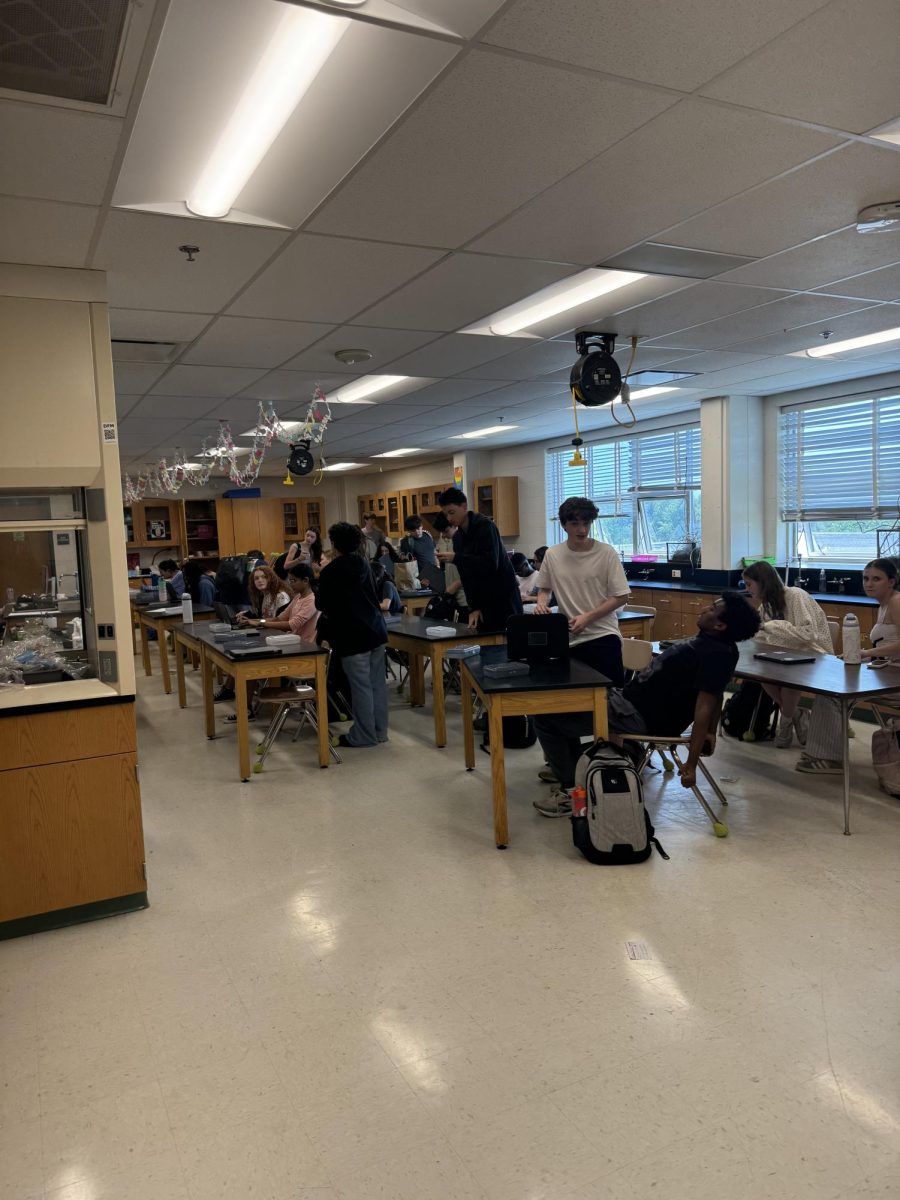When Norman Kiger set foot in Walter Johnson High School over 50 years ago, the school was very different. There were cow pastures around the school and Rock Spring Drive was a dead end. Kiger felt that high school would lead to just that, a dead end. He did not believe that high school would amount to anything. He didn’t believe that he was college bound.
“I had no idea what I was gonna do after I gradated from high school” Kiger said. “Neither of my parents graduated from high school, so graduating high school was…a big deal.”
After he graduated, Kiger got a job as a highway engineer at the Montgomery County highway engineering department. While working there, he got his draft notice and had to serve one tour in Vietnam. Back then, wars were different. During the Vietnam war soldiers didn’t go into the conflict as units, so he didn’t know what unit he was going to be in until he got there.
“I just got sent over and sat in a transit facility in Denang until somebody came and got me, but I didn’t even know who it was gonna be,” Kiger said.
When he finished his tour in Vietnam, he went home by himself, which is different from wars nowadays, where soldiers do everything as a unit.
“It was kinda lonely,” Kiger said.
While in Vietnam, Kiger was accepted to the University of Maryland. Kiger originally thought that he would be an engineer; however, during college he had a change of heart and decided to go to law school. He remembers two people who helped influence him to attend law school. One was a professor at the University of Maryland who taught Symbolic Logic, which is the basis for argument. The other person who had a profound impact on his decision was a friend of Kiger’s who told him that he would go to law school. Kiger did the same and got in. His friend didn’t even apply, however, his words still had a huge impact on him.
“As you can see I was easily influenced,” Kiger said.
While in law school, Kiger became an intern at the States Attorneys office in Prince Georgia’s County. While interning, he was under the tutelage of a licensed attorney and he tried cases.
“Looking back it that’s pretty amazing,” Kiger said.
As an intern, one memory stuck out to him through the years. He tried a juvenile case. The girl who was on trial had assaulted a younger girl, and during the trial she attacked Kiger. Luckily, the girls’ lawyer reacted quickly.
“She lunged across the room at me and her lawyer stuck out his foot and tripped her up and then the bailiff came and grabbed her,” Kiger said.
In 1986 Kiger worked for the general council in the Navy. He was assigned to the naval sea systems command. He worked there for about 10 years then he was reassigned to the naval criminal investigative service, or NCIS, where he worked for 19 years until he retired last year. While working for NCIS, he had another traumatic experience, this time involving a serial killer. During a hearing, the serial killer walked up to Kiger and said that he was going to kill him if he ever go out of prison.
“I don’t think he’s ever gonna get out [of prison] he’s serving six consecutive life sentences,” Kiger said.
Kiger reiterated that going to WJ had a large impact on him because everyone at the school was incredibly smart, since Kiger could compete with those kids it gave him confidence to go to law school.
“When I decided to apply to law school there was no doubt in my mind that I could do it,” Kiger said.
Kiger, who went to high school to graduate and have fun, could not have envisioned the impact that it had later in his life.
“If you could go back in time and talk to Norm Kiger, the sophomore at WJ and say ‘hey, [do] you think you’ll end up being a lawyer?’ That guy would say “‘…I doubt it,'” Kiger said.













